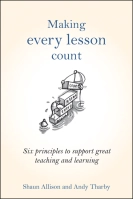Today was Osiris Educational’s ‘Growing Mindsets Convention 2014’ in London. As well as a programme of excellent speakers, including Carol Dweck, Matthew Syed and Barry Hymer, it was also an opportunity to spend some time with EG Schools colleagues – Dan Brinton, Pete Jones & Zoe Elder. The day didn’t disappoint and provided many thought provoking moments. A summary follows.
The day got underway with Professor Carol Dweck – and a photo opportunity not to be missed!
“I don’t divide the world into the weak and the strong, or the successes and the failures…I divide the world into the learners and non-learners.”
– Benjamin Barber
Mindset Rule #1
Fixed Mindset: Look smart at all costs
Growth Mindset: Learn at all costs
If you don’t try, you won’t fail and so you’ll always look smart.
Mindset Rule #2
Fixed Mindset: It should come naturally
Growth Mindset: Work hard, effort is key
This is key. If you believe that you have natural ability, you don’t need effort and so you won’t try. You’re unlikely to have dreams or goals as you get used to people telling you ‘you’re so good, you’re going to be a……‘ – this is hugely damaging for students. In one study in the USA, top athletes from a range of sports were interviewed. None of them had been number 1 in their field as teenagers. They all said this was a part of their success – they knew they had to do something to get better and beat the rest.
Mindset Rule #3
Fixed Mindset: It’s about me – hide mistakes and deficiencies
Growth Mindset: It’s about learning – confront mistakes and deficiencies.
After a setback, students had the following responses…..
Fixed Mindset:
“I’d spend less time on this subject from now on.”
“I would try to cheat on the next test.”
Growth Mindset:
“I would work harder in this class from now on.”
“I would spend more time studying for tests.”
Praise is key – it gives messages about what we value
-
Intelligence Praise – “Wow, that’s a really good score. You must be smart at this.”
- Process Praise – “Wow, that’s a really good score. You must have tried really hard.”
Those students that received intelligence praise, tended to choose the easier task they knew they would do well on – so learning was limited. Those students who received process praise, tended to choose the challenging task, as their intelligence was not at risk.
Why isn’t ‘struggle’ a fantastic word?
We should be praising the effort and the struggle. This will encourage students to develop strategies to help them get unstuck, so that they are more likely to choose challenging tasks and persist when the going is hard – they will then use their mistakes for learning. If we foster this mindset with students, improved grades will be a natural by-product of them engaging with the learning process.
So, when we say “Look, you got an A without really working, you’re really good at maths.” The students hears – If I had to work at it, that must mean I wouldn’t be any good at it.
Similarly, when we say “You did that so quickly and easily. That’s impressive!” The student hears – If I don’t do it quickly, you wouldn’t be impressed.
So by changing how and what we praise, we change the values we communicate to students.
Yet!
By using ‘yet’ we give students confidence in what they can do and encourage persistence e.g.
- I can’t do it….yet
- I’m not good at this topic…yet
- I tried, but I can’t do it…yet
Is it ever too late?
Taught mindset programmes have been shown to make a difference to high school students, college students, university students and the elderly. It’s never too late! It has most impact on the bottom 30% of achievers.
A good way to start such a programme, is to read the following article with students and then discuss it:
Full article here
Students need a growth mindset to…
- Choose learning over looking smart.
- Prefer high effort over low effort
- Be resilient: profit from mistakes and setbacks
Teachers need a growth mindset to…
- Help students fulfil their potential
- Fulfil their own potential as educators
“Infallible is the enemy of learning.”
Matthew Syed, form British number 1 table tennis player, journalist and author of ‘Bounce‘ made a compelling argument that the idea that high levels of performance comes from natural talent is at best misleading and at worst, destructive. Instead, it is the result of two things:
- Quality of practice
- Quantity of practice
Matthew used to believe that he had natural talent – in his quick reactions, that helped him to such success in table tennis. It was this that made him ask tennis player Michael Stich, to serve some balls at him during an interview. Convinced that his natural reactions and talent would enable him to return the serve, he was amazed that he couldn’t….time and time again. Why? Because reactions alone weren’t enough. As a table tennis player he had practised over and over watching his opponents body to see where the ball would go and then respond. This was completely different in tennis – he had no idea because he hadn’t practised and refined the technique. This convinced him that the talent thing was a myth.
If success is about natural talent, what’s the point of trying hard? In fact, with this view, effort can be seen as embarrassing as it is interpreted as ‘I haven’t got talent.’
This view has been perpetuated by programmes such as the X Factor – success is about instant gratification, not hard work. The Olympics helped to dispel this myth though – with many athletes talking the years of effort, commitment and sacrifice that had been needed to help them gain their success.
There’s much to learn from successful football teams on this idea of deliberate practice:
- Brazil – are great, not because of ‘natural samba rhythm’, but because they understand the need for deliberate practice. They spend hours playing futsal – a scaled down, close version of the game, where quick reactions and close control are key. So when they play on the big pitch, it’s easy.
- Barcelona – spend hours doing training drills like this:
Some key points about building success for teachers:
- Sell the growth mindset message to parents as well as students
- Support students to know what to do when they fail – embrace it and use it. Give them the self confidence and robustness to use failure.
- Be precise with feedback – where exactly did they go wrong?
- Equip them with the psychological tools to perform under pressure i.e. exams e.g. mock exams, keep hydrated, do past papers…lots, use chief examiners reports, get feedback from markers.
 Professor Barry Hymer spoke about developing a growth mindset in schools.
Professor Barry Hymer spoke about developing a growth mindset in schools.
Proposal: Implementation of mindset theory in schools might require us to step outside the paradigm within which it has been conceived and articulated.
Possible implication: Practitioners researching their own practice with their peers provide a model for the emergence of growth mindset cultures in schools.
Proposal 2: Implementation of mindset theory in schools might best be achieved by pursuing neo-classical emphases, albeit within a hypermodernist world.
Possible Implication: Many of the things we do (or are required to do) for the best of reasons have the worst possible effects e.g. praise, targets, differentiation by ability (instead, think about differentiation by challenge – so they have a 50% chance of not getting it and so have to struggle).
Privelege feedback over praise
“The trouble with most of us is that we would rather be ruined by praise than saved by criticism.” Norman Vincent Peale.
“Especially when tasks are demanding, the quality of pupils’ meta cognitive skills rather than their intellectual abilities becomes the chief determinant of their learning outcomes.” John Hattie
A few problems with praise
- Invites complacency – geniuses always excel?
- Feeds resentments – everyone says I’m brilliant, why don’t you?
- Erroneously locating the purpose of learning with someone else
- Seeding a fear of future failure – what if I don’t succeed next time?
- Feeding unrealistic self perceptions of current skills levels
- Inadvertently diminishing the value of effort and exaggerating the role of natural ability.
- Emphasising the summative at the expense of the formative.
3 Good Feedback Moves – John Hattie
- Task level – how well tasks are performed – “You need to put more about the Treaty of Versailles.”
- Process level – the process needed to understand/ perform tasks – “Try reading this more slowly.”
- Self regulation level – self monitoring, directing and regulating actions – “You know when you need full stops – check to see if they’re needed here.”
Privelege pupil autonomy over teacher control
Autonomy – being the perceived origin or source of one’s own behaviour.
3 Massively Researched Conclusions:
- Autonomously motivated students thrive in educational settings
- Students benefit when teachers support their autonomy – and so do their teachers.
- These benefits appear in both the educational and developmental domains.
Autonomy’s classroom gifts:
- Better conceptual understanding
- Better grades
- Greater persistence
- Greater productivity
- Less burnout
- Greater psychological well being
The 4 Ts of Autonomy:
- Task – is there a degree of open endedness about the task?
- Time – are there flexibilities about how long it can take?
- Technique – does the task offer alternative routes to completion?
- Team – do pupils have a say in choosing their collaborators?
Something tor try…
Giving an A
At the start of the year, ask all students to write a letter (dated July next year) that starts ‘Dear Sir/Miss, I got an A because…….’
Instructions:
- Tell the story of what will have happened to you by next July that is in line with this exceptional performance grade.
- Provide as much detail as you can and write in the past tense. Avoid phrases like ‘I hope…’, ‘I intend….’ etc.
- Report on goals achieved or prizes won if you must, but emphasise more the person you have become.
An A is not an expectation to live up to, but a possibility to live into……












Reblogged this on Excellence & Growth Schools Network.
Pingback: 2014 – blogging best bits | Class Teaching
Pingback: Building an Excellence & Growth Culture | Belmont Teach